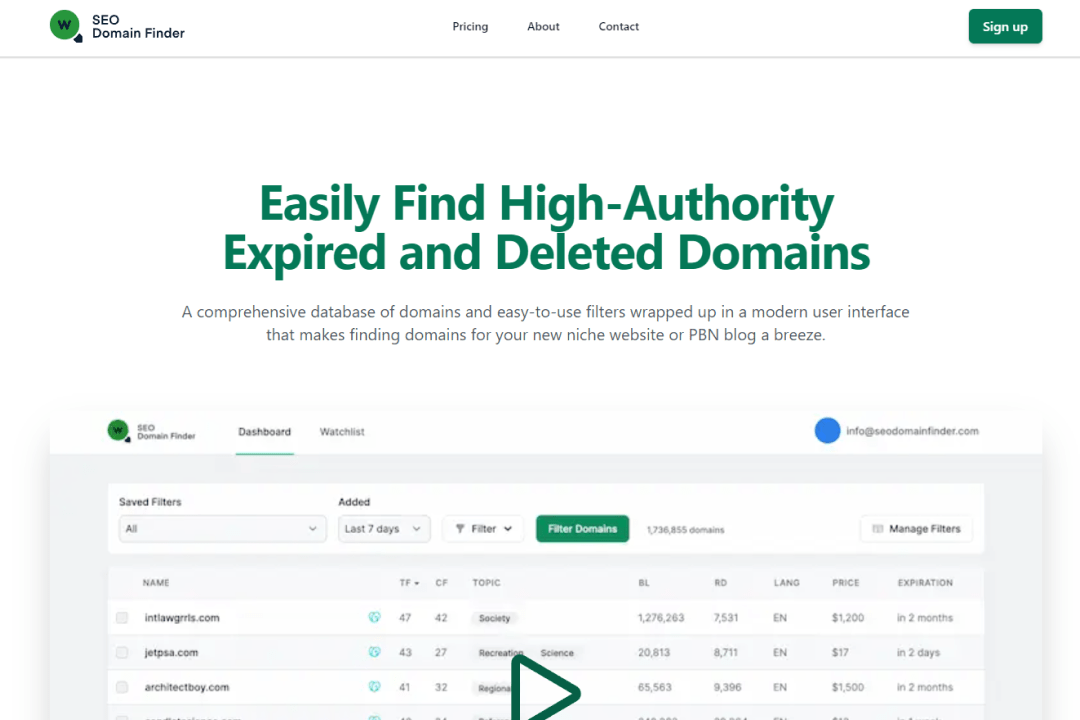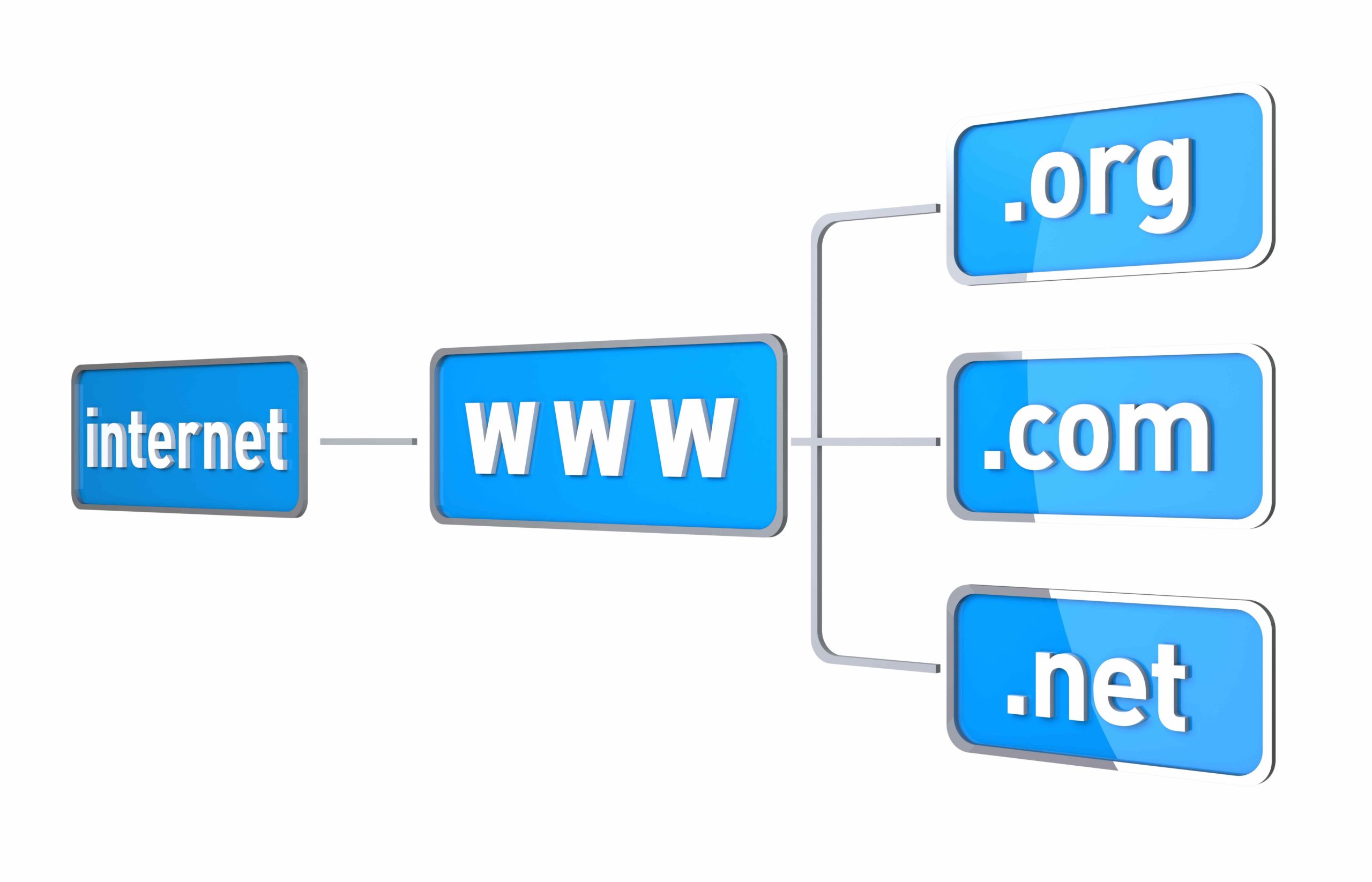
A Private Blog Network (PBN) is a network of websites created to increase the search engine rankings by linking to the main site, usually from the homepage.
In this article, we’ll cover everything you should know about PBNs, including their advantages and the risks you should consider.
Read to the end to learn our professional insights and honest opinion on this controversial topic.
How PBNs Work
The work of PBNs is to create the illusion that your website earns links based on its value.
Backlinks are an essential factor in Google’s ranking system. Each link to your website represents a vote of trust, signaling to search engines that your content is useful and reliable.
By strategically linking your “money” site from other websites within your PBN, you’re creating these votes artificially, expecting that Google sees them as natural, resulting in higher rankings for your site.
While Google constantly updates its algorithms to fight unnatural links, PBNs still deliver positive results for many websites. That’s why the owners of PBNs take measures to hide any “footprints” that could tie their money site to the sites in their PBN and make them look like normal sites.
The Benefits of PBNs in SEO
PBNs are common practice in our SEO community (not everyone will admit that ;)), and there are a few main reasons for that.
The benefits of PBNs in SEO include:
- Improved Search Engine Ranking: We already discussed that increasing a website’s position in search engine results is the main goal of the PBNs. By creating a network of high-quality backlinks, PBNs can move a website higher in the rankings, making it more visible to potential visitors. This is especially useful for new websites striving to gain attention.
- Increased Metrics: Domain Rating (DR) and Domain Authority (DA) are metrics that measure a website’s strength and chance to rank in search engine results based on its link profile. These metrics are not a ranking factor but a good indication of how the site is growing. Higher scores can help attract organic links and potentially increase the website’s value when it comes time to sell it.
- Control Over Backlinks: If you have a PBN, you have control over the backlinks to your website. These backlinks come from private blogs that you own, so you can decide how many you want, how good they are, and how often they’re added. It is important to note that PBNs are mainly used for homepage links.
- Attracting Clients: If you build a strong PBN, you can use it to help other websites improve their search engine ranking by selling them links. You could reach out to websites on the second or third pages of search results and offer your assistance to move them higher.
How to get PBN Backlinks?
There are two ways to get PBN backlinks:
Building your own PBN:
Building a network yourself and using it to support your own site have some pros and cons:
- Pros: personal PBNs are more efficient in the long run and can be monetized by using them to sell links. Also, one network can be used for more than one project.
- Cons: Creating your own PBN is a time-consuming process and requires a significant initial investment.
Buying Backlinks
The other way to get PBN backlinks is to buy them from an existing PBN. This way allows you to get a high number of links in a short time, but you won’t have control over them and what other sites they are connected to. As previously mentioned, working with PBNs carries serious risks, and if are mishandled, they can potentially harm your website’s search engine ranking and reputation.
What to Consider Before Building PBN by Yourself
The main concept in building a PBN is to build them quickly, with little effort and a small investment, but at the same time to look like normal sites without any links between them using different tools and techniques (different IPs, DNS, Whois data, plugins, etc.).
If you decide to build your own PBN, there are some factors you should consider:
How to Use Expired Domains for PBNs
Using expired domains for your PBN is the fastest and most effective way to build your PBN.
Expired domains often come with an existing online reputation thanks to the backlinks pointing to them.
By building your PBN websites on expired domains, you’re giving your main website a boost of “link juice.” Think of it as a power-up for your content and domain authority, elevating your site’s credibility in the eyes of search engines.
How To Choose The Right Domain
If you’re searching for expired domains for your PBN, there are some basic factors you should keep in mind.
- You should pay special attention to the quality of the links that the domain has. Avoid low-quality or spammy links and focus on backlinks from high-authority websites, and backlinks from websites that are relevant to a domain’s niche or industry.
- SEO metrics can give you helpful insight when you choose the right PBN domains. The ones that matter when choosing PBN domains are Domain Authority (DA), Domain Rating(DR), Trust Flow (TF), and Citation Flow (CF).
- You can visit the Web Archive to learn when the website was last active. We recommend selecting domains with a clean history and those that have been actively used recently.
- Choose a domain that is close to your niche and preferably in the same language or country.
How to Find Expired Domains
When it comes to finding expired domains, there are several ways you can do it:
- Buy PBN Domains Directly From Marketplaces: SEO.Domains, Domain Coasters
- Buy PBN Domains Directly From Auctions: GoDaddy, Namecheap, Sedo
- Reverse Domains Hunt: Scanning all the backlinks connected to an authoritative domain to uncover quality expired domains within the links.
- Drop Catching or Back Orders: tracking domains throughout their expiration process and using tools to register them the moment they become available.
How to Choose the Right Hosting
PBN Hosting is a hosting provider focused on removing any fingerprints that all your PBNs belong to the same owner and are part of the same network. This includes providing different IP addresses and Name servers for your websites, blocking web crawler bots, additional security features, and more.
Choosing the right hosting for your PBNs is extremely important because bad hostings are the main reason PBNs are getting de-indexed or banned.
In our work, we don’t use PBN hosting, but instead, we prefer standard hosting that allows us to combine PBNs with regular websites on a single IP.
The Risks of Using a PBN
Using a Private Blog Network (PBN) for link building carries significant risks. Here are some of the risks of using a PBN, based on the search results:
- Penalties: The main risk of using PBNs is getting penalized by Google. Google spends a lot of time and effort trying to look for these networks, and if it eventually spots yours, you have spent a lot of time and money on something that will no longer give you any returns.
- Loss of Credibility: Using PBNs can damage your website’s credibility and reputation, as it is considered a black hat SEO tactic.
- Wasted Investment: Building and maintaining a PBN can be a costly process, and if Google penalizes your website, you will have wasted your investment.
- Short-Lived Results: While PBNs can offer quick ranking improvements, these improvements are often short-lived, and search engines are becoming better at detecting and penalizing PBNs.
How To Detect Private Blog Networks
Detecting Private Blog Networks (PBNs) can be challenging, but you can use some helpful SEO tools like Ahrefs to check out the backlinks.
Also, look for these signs:
- Suspicious anchor text
- Backlinks from homepage
- Low organic traffic
- High spam score
- Large spikes in organic traffic
- Redirects from other domains
- Low-quality content
- Low-quality web design
- Websites without “About” information or contact details
What Is Google’s Opinion on PBNs
In short – Google doesn’t like PBN at all. Let’s not forget that PBNs are created to mislead search engines, and this is a violation of Google’s Webmaster Guidelines. For more information, read this.
What is Quirk Biz Expert’s Opinion on PBNs
We at Quirk Biz think that PBNs can be quite useful in a few cases:
- When you’ll use one PBN for links to more than one site – it is much cheaper than buying links for each site separately.
- If you work in sensitive niches, like gambling, forex, health, CBD, dating, etc. – in these niches, it is extremely difficult to collect natural links, and sometimes PBNs are the only option for scale. You can check out our article about Casino PBN links here.
- In some countries where there is a language and cultural barrier in communicating with other webmasters, it’s also difficult to get organic links, and PBNs, again, are the only way to gain some links.
Mixing links from PBN with other types of external and internal links is important, and that’s why you should use PBNs as a part of the overall SEO strategy.
Conclusion
In the world of SEO, Private Blog Networks remain a controversial and high-risk strategy. While they can offer quick results and control, the risks of search engine penalties and detection are significant. As such, most SEO experts and professionals advise against using PBNs and instead recommend focusing on ethical, long-term SEO practices that prioritize creating valuable content and gaining natural, high-quality backlinks. Remember that the risks of using PBNs often outweigh the potential rewards, making them a choice that should be approached with caution and careful consideration.











































































































